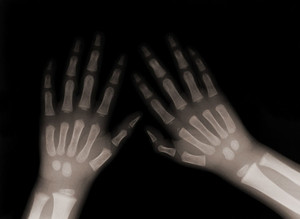During the last decade, the availability of biological therapies has revolutionized the treatment of rheumatoid arthritis. Biologicals, unlike small-molecule chemical drugs, are extremely complex molecules, making producing biosimilars far from a simple process.
Use of biological disease-modifying anti-rheumatic drugs (B-DMARDs) has improved the outlook for patients not fully responding to conventional DMARDs. The need for biosimilar products with comparable efficacy and safety to B-DMARDs is discussed by Professors Giovanni Lapadula and Gianfranco Ferracioli, highlighting the possible issues that will govern their validation [1].
FDA, in its draft guidelines, requires that biosimilars applications be based on structural and functional characterization, as well as analytical studies demonstrating that the biological product is ‘highly similar’ to the reference product in both animal studies and in a clinical study (or studies) – proving ‘biosimilarity’. Such studies must include the assessment of immunogenicity, pharmacokinetics and pharmacodynamics, demonstrating safety, purity, and potency in indication(s) for which the reference product is licensed. EMA, in addition, requires a comparative efficacy clinical trial, showing clinical comparability and immunogenicity assessments and risks in different indications.
It is important to note that one amino acid substitution or difference renders a molecule ‘not-biosimilar’. Many biologicals are antibodies, i.e. proteins that have undergone post-transcriptional modification. As a result, micro-variations – such as asparagine deamidation – can occur, affecting the three-dimensional structure and antigen-binding properties of the molecule. Thus, they are unlikely to be structurally identical in terms of tolerability, immunogenicity and safety. Trials therefore have to be designed to show the clinical bioequivalence of the biosimilar and the reference biological. Thus, once biosimilarity has been demonstrated, the risks of alternating or switching should not be greater than with repeated use of the reference biological and thus interchangeability should be possible.
Lapadula et al. highlight that other issues ensue when interchangeability of biosimilars and originator biologicals is in place. This includes tolerability in combination with conventional drugs, e.g. methotrexate, antimalarials, is the same; extrapolation to other indications and application of the indications in paediatric illnesses, etc.; may be possible.
The clinical bioequivalence of all biosimilars must be demonstrated in clinical trials, notes Lapadula. Immunogenicity must be tested, pharmacokinetic analysis in humans is essential, and safety must be assessed thoroughly to confirm the ‘bio-identity’ and ‘biosimilar interchangeability’ of any molecule.
There are currently no biosimilar monoclonal antibodies approved by FDA for treatment of rheumatic diseases. In Europe, EMA approved two applications for marketing authorization of infliximab biosimilars on 28 July 2013 [2, 3].
Related articles
Cost savings from use of biosimilars in rheumatology
Development of biosimilars for rheumatology
Biosimilars in rheumatology
References
1. Lapadula G, Ferraccioli GF. Biosimilars in rheumatology: pharmacological and pharmacoeconomic issues. Clin Exp Rheumatol. 2012;30(4 Suppl 73):S102-6.
2. GaBI Online – Generics and Biosimilars Initiative. Biosimilar applications under review by EMA –2013 Q1 [www.gabionline.net]. Mol, Belgium: Pro Pharma Communications International; [cited 2013 Aug 16]. Available from: www.gabionline.net/Biosimilars/General/Biosimilars-applications-under-review-by-EMA-2013-Q1
3. GaBI Online – Generics and Biosimilars Initiative. EMA approves first monoclonal antibody biosimilars [www.gabionline.net]. Mol, Belgium: Pro Pharma Communications International; [cited 2013 Aug 16]. Available from: www.gabionline.net/Biosimilars/News/EMA-approves-first-monoclonal-antibody-biosimilars
Permission granted to reproduce for personal and non-commercial use only. All other reproduction, copy or reprinting of all or part of any ‘Content’ found on this website is strictly prohibited without the prior consent of the publisher. Contact the publisher to obtain permission before redistributing.
Copyright – Unless otherwise stated all contents of this website are © 2013 Pro Pharma Communications International. All Rights Reserved.








 0
0











Post your comment